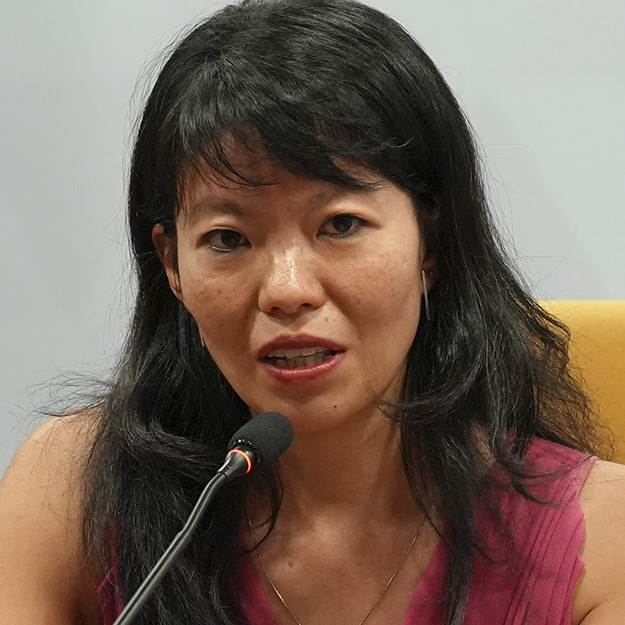
Mercosur-European Union Agreement: Who benefits?
After two decades of negotiation, impasses between advancing free trade and protecting the environment and human rights are yet to be overcome. States and productive sectors focus on increasing commercial exchanges while civil society, traditional communities and labour unions stress the need for transparency in negotiations and protection of socio-environmental rights.
Author: Natália Suzuki
Diesen Artikel downloadenProvisional draft since 2019
In this first year of the Lula administration, expectations were high for their resumption of policies and actions that stopped or were distorted in the previous government, including initiatives in the area of foreign relations. Different segments of society, each with its own interests, waited for Brazil’s return as a leader in negotiations regarding the Mercosur-EU trade agreement.
This treaty has been discussed and designed for more than 20 years. In 2019, the two blocs finally signed a provisional draft. At the time, the Brazilian government expected to sign the agreement in the following year at the latest, due to the cooperative stance of Germany, which would take over the rotating presidency of the Council of the European Union. Germany has an interest in the agreement because mineral resources imported from Mercosur supply its chemical, automobile, machinery and equipment industries, which goods would be exported to Mercosur as well.
Expanding commercial exchanges by lowering taxes on products from both blocs increases production demand for the countries involved. Within a maximum period of 15 years, the treaty would zero out import tariffs on 91% of trade. For Brazil, Argentina, Paraguay and Uruguay, increasing production of commodities such as ores and farming products poses risks to the preservation of their natural resources, environmental protection areas, as well as workers’ and traditional peoples’ rights, including indigenous, quilombola and riverine communities.
Amazon destruction and slave labour
In the last four years, Amazon destruction rates have reached record levels in Brazil. An area the size of Belgium has been swallowed up by illegal deforestation and mining, leaving a trail of environmental destruction and death for indigenous people who still perish from hunger, disease and persecution by loggers, miners and farmers who invade their territories to exploit them. In addition, slave labour rates in the Amazon remain appalling. Almost half of the workers enslaved between 1995 and 2021 were employed in farming activities in the Amazon – a total of 27.913 exploited people. This type of labour is used in deforestation and mining, but also in plantations and livestock. European and South American civil society, with support from parliamentarians from several countries, have denounced this alarming situation. As a consequence, massive protests took place in Europe and they help to prevent the signature of the agreement.
Faced with the catastrophe of Brazilian environmental policy under Bolsonaro, the ratification process was suspended. Countries such as Austria, France and the Netherlands opposed an agreement that did not guarantee conditions for protecting the environment, more specifically the Amazon. The European Parliament must endorse the treaty, but all states that make up both blocs must also approve it unanimously.
Civil society entities considered the provisional version of the agreement obsolete for not including binding elements and not meeting their demands. In recent years, civil society organizations, labour unions and traditional communities have protested the lack of inclusion and dialogue during negotiations and point out the absence of transparency by States, which violates Convention 169 of the International Labour Organization. That Convention is binding on its signatories and provides for consulting traditional peoples, entitled to autonomy and preservation of their cultural identities, religions, languages and ways of life. Therefore, they must be heard when they will suffer impacts, as is the case of the agreement.
Trade unions undergoing reorganization
In the case of Brazil, the Lula administration is trying to get closer to civil society, unions and communities again. On his trip to Europe in February 2023, the Brazilian president visited union actors in Portugal and Spain, signalling his willingness to establish dialogue and focus on labour rights. Dialogue with these societal sectors was completely blocked and destroyed during Bolsonaro’s government, and now the administration struggles to open communication channels and reconcile conflicting interests. Now, labour unions in Brazil are trying to reorganize themselves and their agenda after years of dismantling of their structures. The Brazilian unions intend to joint efforts for the common interests of workers in the Mercosur countries and prepare to debate the agreement since they were apart from the discussions since 2019. At that time, labour federations made a statement against the agreement because they considered it asymmetrical. For them, the demand for products from Mercosur would have a negative impact on the forms of production, availability of natural resources, and workers’ rights.
If the agreement between the blocks is approved, it will boost the sales of four large Brazilian companies in the animal protein sector – BRF, JBS, Marfrig and Minerva – the world’s largest meat processors. Ninety-two percent of what JBS, Marfrig and Minerva produce is already exported to the EU. According to NGO Repórter Brasil, “In addition to the current quota of 200,000 tonnes of beef, the treaty provides for an extra 99,000 tonnes to be imported from Mercosur, and Brazil should provide at least 40% of this additional volume. It will also take up most of the new quota of 180,000 tonnes of poultry, completely exempt from tariffs.”
Agribusiness support base of current government
The support base of the current government in Congress includes lawmakers linked to the agribusiness caucus, strongly represented in the Chamber of Deputies and the Senate, but also inside the government. The correlation of forces was already an issue to be faced in Lula’s previous administrations, and since most of Brazil’s revenues come from exporting commodities, clashing with the agribusiness industry is not a good idea for the government. Then, Lula’s administration has to settle the agribusiness interests in their economic policies and, at the same time, tries to reconstruct the environmental legislation that was destroyed by Bolsonaro’s government in order to protect Amazonia and other biomes.
At the end of May, Brazilian Congress had tried to withdraw attributions and powers from the Ministry of the Environment and the Ministry of Indigenous Peoples. Although the proposal still needs approval, this demonstrates the fragility of the socio-environmental area in the government. “It will be a great loss, even for very sensitive processes that are being negotiated, especially the European Union and Mercosur agreement”, said Marina Silva, Minister of Environment. It seems that the environmental area will face setbacks and advances throughout this government. A week later, Mariana and Lula launched the Action Plan for the Prevention and Control of Deforestation in the Legal Amazon. Among several measures, the plan aims at zero deforestation in the Amazon by 2030.
EU side letter
In view of the criticism of the agreement as damaging to the climate and socially incompatible, the EU decided to draw up an additional instrument – a side letter to be included in the agreement – but demanded that Mercosur treated the document as confidential. This confirms exclusion of civil society, labour unions, traditional communities and the scientific community, but the document was leaked to a civil society organization.
Brazil’s Minister of Foreign Affairs, Mauro Vieira, declared that there are unilateral measures on the part of the EU, which would unbalance the negotiations. In Brazil’s National Congress, the minister said that the document was “extremely tough and difficult” and shows a protectionist approach referring to the goals for environmental protection mentioned in the document. Meanwhile, Brussels arguments that this is just a proposal to Mercosur. According to the minister, the proposal may create a series of barriers, possibilities for retaliation and sanctions based on extremely strict European environmental legislation. Therefore, Mercosur is now considering presenting a side letter as a counterproposal.
The minister’s statement was considered awkward by the Brazilian civil society organizations, because although the additional instrument suggests the reduction of the deforestation rates on Mercosur countries, it does not include new binding mechanisms and sanctions. In fact, they consider it a weak document because it just brings intentions and general considerations regarding the commitment of the countries. According to some Brazilian organizations, the minister’s reaction to the side letter is a way to criticize the general terms of the agreement which were negotiated by the Bolsonaro’s government as well as the European Deforestation Regulation.
Real concern: EU-Deforestation Regulation
Brazilian civil society organizations highlight that the real concern for the Brazilian industry and government is the EU`s new Deforestation Regulation. They consider it protectionist, since some of its clauses would prevent free imports of their products by Europe. Under this legislation, exporters of soy, corn, coffee, beef, pork, poultry and lamb, timber, cacao, rubber and paper would have to submit reports on their supply chains to prove that they are free of socio-environmental violations. The Brazilian agribusiness industry claims that this would affect mainly small landowners, who would not be able to deal with all the red tape. However, the truth is that large producers are aware of issues in their chains of suppliers and buyers, and that they will have to find ways to adapt to the new EU-regulation. It is true that European producers today must meet a series of socio-environmental standards, which would make their products less competitive than those that supposedly do not obey these rules.
However, not only the Amazon is under threat; other important biomes such as Brazil’s Cerrado and Paraguay’s Chaco are also being destroyed by the expansion of agricultural and livestock farms. But the EU-deforestation regulation does not cover them. Therefore, there is a risk that agribusiness will only divert its exports from the rainforest area to other third countries (e.g. China) to meet the EU-requirements. Many civil society organizations see this as a major shortcoming of the EU-regulation and demand their expansion.
Despite wishes and intentions to close the agreement in 2023, there seems to be a long period of negotiations ahead. But whatever the terms of the document are, it seems impossible to reconcile all interests, since many are divergent and conflicting. We hope that the most vulnerable sectors of society do not pay the price again.
Diesen Artikel downloadenKontakt
Kontakt
Kammer für Arbeiter und Angestellte Wien
Abteilung EU & Internationales
Prinz Eugenstraße 20-22
1040 Wien
Telefon: +43 1 50165-0
- erreichbar mit der Linie D -
